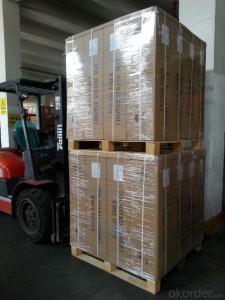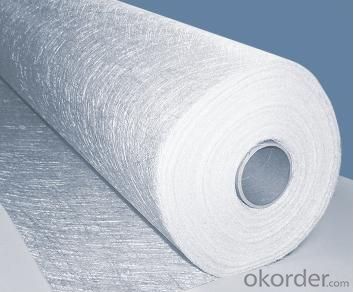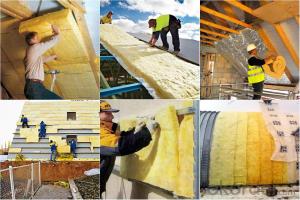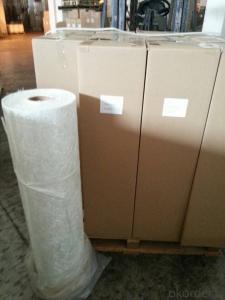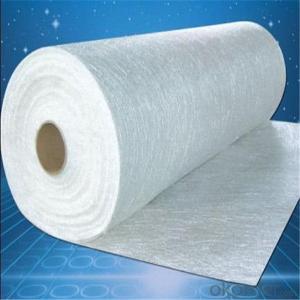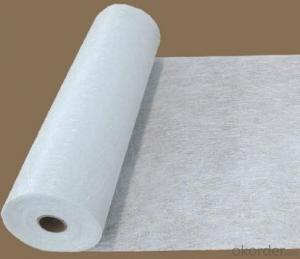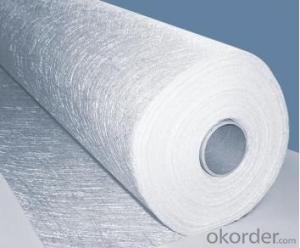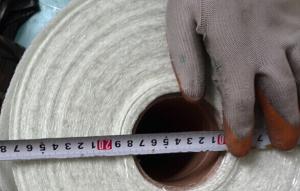Fiberglass Mat Tissue Chopped Strand Mat 450gsm
- Loading Port:
- Shanghai
- Payment Terms:
- TT or LC
- Min Order Qty:
- 10000 kg
- Supply Capability:
- 10000000 kg/month
OKorder Service Pledge
OKorder Financial Service
You Might Also Like
1.Breif Introduction
Fiberglass Chopped Strand Mat is an non-woven E- or C-glass fiberglass fabric manufactured by spreading continuous filament rovings of 50mm in length randomly and uniformly in combination with polyester binder in power form (or other binder in emulsion form).
2.Main Features
Chopped Strand Mat is characterized by good combination of resin, easy operation, good wet strength retention, good laminate transparency and low cost. It is suitable for the application by hand lay-up FRP moudings, such as, various sheets and penels, boat hulls, boat tubs, cooling towers, corrosion resistand, vehicles, etc.
3.Specifications
Glass type: E-glass and C-glass Chopped Strand Mat.
Bond type: Powder or Emulsion.
Density: 80g/m2-900g/m2.
Normal types : 180g/m2. 225g/m2. 300g/m2 450g/m2. 600m2.
Bond Content: 100g/m2 (10%-15%). 300g/m2.450g/m2.600g/m2 (4%-6%)
Roll Width: 200mm-2600mm.
Normal types :750mm.1040mm.1250mm.1270mm.1450mm.
Roll weight/: 28kgs-55kgs.
Normal types :28kgs.30kgs.35kgs.
4.FAQ
Q: Which knid of payment terms can you accept?
A: We can accept 30% prepayment, 70% payment before shippment. LC is also accepted
Images
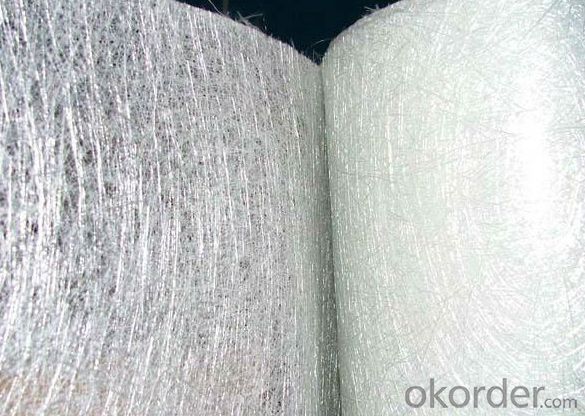
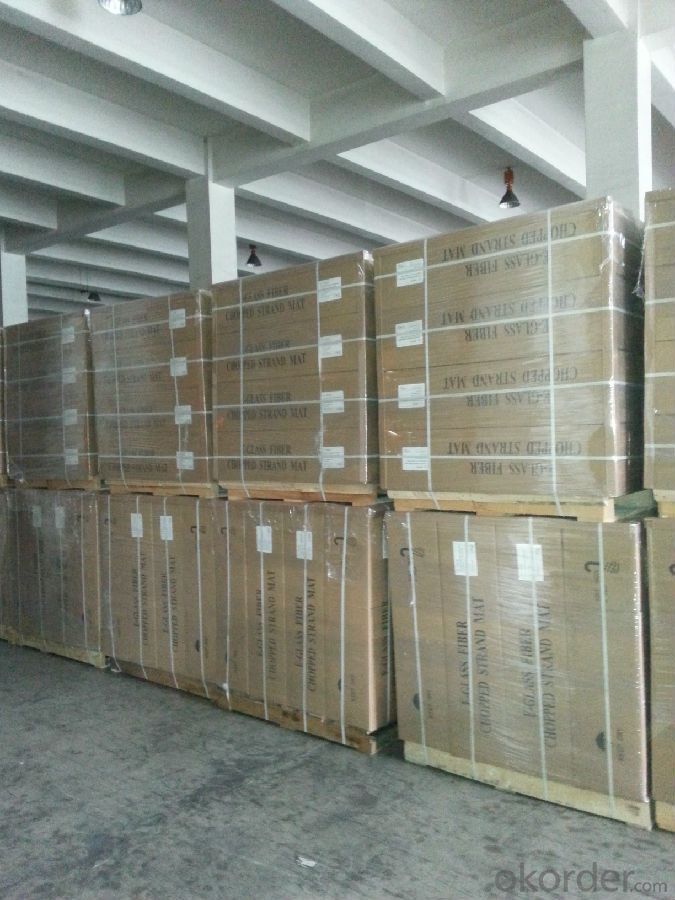
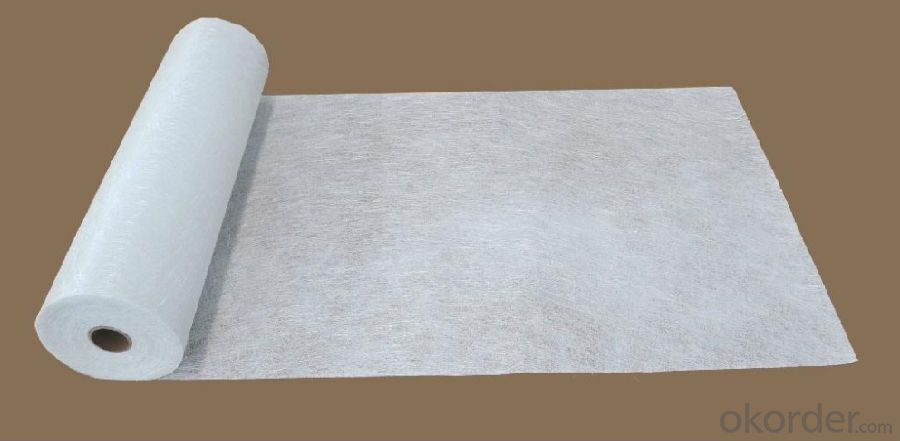
- Q: Can fiberglass mat tissue be used for corrosion-resistant applications?
- Yes, fiberglass mat tissue can be used for corrosion-resistant applications. Fiberglass mat tissue is made from fine glass fibers bonded with a resinous binder, which provides excellent corrosion resistance properties. The tissue is designed to be used as a barrier layer in various corrosion-resistant applications such as in the construction of tanks, pipes, and vessels that are exposed to corrosive environments. The fiberglass mat tissue acts as a protective barrier, preventing the penetration of corrosive elements and enhancing the durability and longevity of the structure. Additionally, the tissue is lightweight, easy to handle, and can be easily molded into complex shapes, making it an ideal choice for corrosion-resistant applications.
- Q: How is fiberglass mat tissue used in the production of agricultural equipment?
- Fiberglass mat tissue is used in the production of agricultural equipment as a reinforcing material. It is typically applied to the surface of the equipment, such as tractor bodies or storage tanks, to provide strength, durability, and resistance to environmental elements. The fiberglass mat tissue helps in enhancing the structural integrity of the equipment, making it more reliable and long-lasting for agricultural applications.
- Q: What are the common sizes available for fiberglass mat tissue?
- The common sizes available for fiberglass mat tissue can vary depending on the specific application or manufacturer. However, some common sizes include widths of 1 meter (39 inches), 1.27 meters (50 inches), and 1.52 meters (60 inches). The length of the fiberglass mat tissue can also vary, with common options ranging from 50 meters (164 feet) to 300 meters (984 feet) or more. It's important to note that these dimensions are just examples and may not reflect all available sizes on the market.
- Q: Can fiberglass mat tissue be used for making lightweight countertops?
- Yes, fiberglass mat tissue can be used for making lightweight countertops.
- Q: Can fiberglass mat tissue be used for mold-making?
- No, fiberglass mat tissue is not typically used for mold-making. Fiberglass mat tissue is a lightweight material made from randomly oriented glass fibers bonded together with a binder. It is commonly used in insulation, construction, and automotive industries for reinforcement purposes. For mold-making, other materials such as silicone, latex, or polyurethane are more commonly used. These materials have the necessary properties to create flexible and accurate molds that can reproduce intricate details. They are also easy to work with and can be poured or brushed onto the original object to create a mold. Fiberglass mat tissue, on the other hand, lacks the flexibility and accuracy required for mold-making. It is not designed to be easily molded into complex shapes or capture fine details. Additionally, it may not provide the desired level of flexibility needed to remove the original object from the mold without causing damage. Therefore, it is recommended to use specific mold-making materials that are specifically designed for this purpose, rather than attempting to use fiberglass mat tissue.
- Q: What is the expected lifespan of fiberglass mat tissue in underground applications?
- The expected lifespan of fiberglass mat tissue in underground applications can vary depending on various factors such as the specific conditions of the underground environment, the quality and thickness of the fiberglass mat tissue, and the level of maintenance and care provided. However, on average, fiberglass mat tissue is known for its durability and longevity, making it suitable for underground applications. In general, fiberglass mat tissue is designed to be highly resistant to corrosion, moisture, and other environmental elements commonly found in underground settings. This makes it a reliable choice for applications such as underground pipes, tanks, and other infrastructure where protection against deterioration is crucial. With proper installation and regular maintenance, fiberglass mat tissue can have an expected lifespan of 50 years or more in underground applications. However, it is essential to note that this estimate can vary depending on the specific conditions and usage of the fiberglass mat tissue. To ensure the maximum lifespan of fiberglass mat tissue in underground applications, it is recommended to follow industry best practices, such as proper installation techniques, regular inspections, and addressing any issues, such as cracks or damage promptly. By doing so, the lifespan of fiberglass mat tissue can be extended, providing long-term reliability and durability in underground settings.
- Q: Is fiberglass mat tissue suitable for chemical storage tanks?
- Fiberglass mat tissue is generally considered suitable for chemical storage tanks. Fiberglass itself is known for its excellent chemical resistance properties, making it a popular choice for storing a wide range of chemicals. Additionally, fiberglass mat tissue is typically used as a reinforcement layer in the construction of fiberglass tanks, providing added strength and durability. However, it is important to note that the specific chemical being stored must be taken into consideration. Some highly corrosive or reactive chemicals may require more specialized materials or additional protective coatings to ensure the integrity of the storage tank. Therefore, it is always recommended to consult with a professional engineer or manufacturer to determine the most suitable materials for a specific chemical storage application.
- Q: Does fiberglass mat tissue require any special precautions during transportation?
- Yes, fiberglass mat tissue does require special precautions during transportation. It should be handled with care to avoid any damage or breakage as it can easily tear or become compromised. It is advisable to use proper packaging and secure the material to prevent movement or shifting during transportation. Additionally, protective measures such as wearing gloves, masks, and safety glasses should be taken to avoid any potential irritation or respiratory discomfort caused by the fiberglass fibers.
- Q: Can fiberglass mat tissue be used for insulating refrigeration units?
- Yes, fiberglass mat tissue can be used for insulating refrigeration units.
- Q: Can fiberglass mat tissue be painted over?
- Yes, fiberglass mat tissue can be painted over. However, it is important to properly prepare the surface before painting by cleaning and sanding it to ensure good adhesion of the paint. Additionally, it is recommended to use a primer specifically designed for fiberglass surfaces to enhance the paint's durability and appearance.
Send your message to us
Fiberglass Mat Tissue Chopped Strand Mat 450gsm
- Loading Port:
- Shanghai
- Payment Terms:
- TT or LC
- Min Order Qty:
- 10000 kg
- Supply Capability:
- 10000000 kg/month
OKorder Service Pledge
OKorder Financial Service
Similar products
Hot products
Hot Searches
Related keywords

